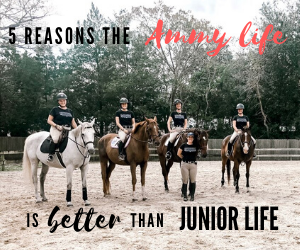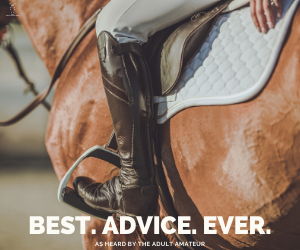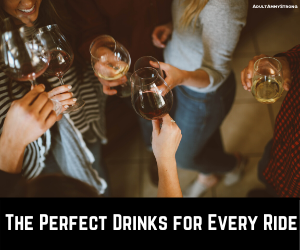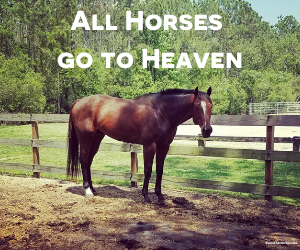|
I know I've said this before, but I am AMAZED at the willingness of people to share their stories and experiences with me! That being said, the next featured rider in Amateur Hour, Sara Ladley, has really gone above and beyond in her answers and I couldn't be more thrilled at how closely her words relate back to my reasons for starting #AdultAmmyStrong. What is your day job and how often are you at the barn? I work at PNC Bank as a Digital Experience Product Manager during the day- essentially I manage the development of our mobile banking applications that let people do nifty things like view their balances, deposit checks, and send money to each other on the go. I’m also the owner and creative director of Hunt Club. Together with my mother, we run the little company that started in my dorm room in 2014 and has blossomed into a wonderful online equestrian business. I make it out to the barn every day after leaving my day job at PNC and before heading home to my “night job” with Hunt Club – I feel kind of like Batman sometimes. How do you plan your horse's training and show schedule around your work schedule? How often do you show? With four horses and limited time to ride in the evenings during the week, I’m lucky enough to have great friends at the barn who help me exercise all of the boys and keep them in shape. My trainer is always willing to schedule lessons around my work hours, so if I have to stay late for some reason we’re able to make time for a lesson as soon as I can get out to the farm. I also take lessons with the whole crew on the weekends, which helps keep everyone competition ready. When it comes to showing, I’m very grateful to be able to work remotely most of the time when I need to leave during the week for competitions. During the summer, most of the shows we attend have their AO and AA divisions on Fridays and Saturdays, so I typically drive out after work on Thursday and work remotely while showing on Friday. It gets a little hectic, especially when I have more than one horse showing that day, but I work hard to stay on-call with the office while focusing on my rides. Usually you can find me ringside with my laptop out and headphones on while I’m waiting for the jog or studying the course! I typically show twice a month during the summer and once a month during the winter – although our winter show circuit takes place mostly on the weekends so I usually don’t have too many work conflicts (score!). Competing at Indoors these last few years has been tough because the amateur divisions are typically smack-dab in the middle of the week, but luckily my team has been very flexible and allowed me to work remotely on the days I was competing. When we leave for WEF in March, I typically sacrifice some of my coveted vacation days and sprinkle in some remote working days, which allows me to stay down in Wellington for two weeks to compete. The flexibility of my day job has allowed me to keep up with my showing even after I graduated from college. I’m very grateful that my team at PNC is so flexible with my schedule, and that my coworkers don’t mind overhearing the in-gate announcements when I join conference calls. What do you find you struggle with most as an adult amateur? And how do you overcome that? In order to continue competing my horses as a working amateur, I need to be able to switch between “work mode” and “show mode” when I’m working remotely at competitions. It doesn’t sound that complicated in theory, but there’s a lot of mental skill required to be able to go from presenting on a video conference call one moment to swinging your leg over the saddle and throwing down a flawless hunter trip the next. This becomes especially challenging if we’re having an issue at work that needs to be addressed immediately, but I also need to get down to the far ring for my under saddle class. You can’t bring work stresses into the saddle with you because your horse deserves your undivided attention and focus; so being able to compartmentalize working from competing has been a huge hurdle for me to overcome this past year. I’m still working on it, but I think it’s definitely one of the things I’ve had the most trouble with most as an amateur rider.
The wins and the highs are incredibly amazing, but missed distances, bad rounds, and “lost” blue ribbons bring the lowest of lows if your happiness is solely based on the results of your show career. As an amateur, this mindset just isn’t healthy. Letting your ribbons dictate your happiness isn’t good for anyone, but it’s especially destructive for working adult riders who sacrifice so much just to be able to attend horse shows. Imagine after having a crappy week at your job, you work so hard to be able to attend a horse show on the weekend, but end up having an unlucky rail at the two stride which pushes you out of the ribbons. You just had an awful week at work, followed by an ‘awful’ weekend at a horse show that is SUPPOSED to be fun, all because you feel as though if you don’t walk away with a ribbon, the entire effort was a total bust. Sound’s pretty terrible right? Putting insane amounts of pressure on yourself to win ribbons that will dictate how good you feel about yourself isn’t healthy, and it isn’t a productive way to grow in this sport and to grow as a person. As a working adult, I’ve realized that winning at XYZ show isn’t going to magically make my life better – I know that there’s a real world out there where things aren’t all blue ribbons and rainbows, and that the sole measure of my existence isn’t the year-end award I earned, but rather the kind of person I’ve become along the way. Championship ribbons don’t get me anything in the real world, but learning and practicing the mental skills that are a critical part of riding, and taking time for myself to have fun, relax, and enjoy my furry equine partners certainly will. This sport is too expensive, too difficult and too time consuming to participate in as a working adult to measure your successes in class wins and cheap ribbons. Working SO HARD to take off time to show, only to leave disappointed because you didn’t bring home the blue is a really good way to burn yourself out and make showing miserable. If you alter your focus to getting more out of your riding than just prizes and accolades, you’ll find everything from showing all weekend to even the most menial tasks like grooming your horse are so much more rewarding and enjoyable. As an amateur rider, my focus has shifted from striving to arrive at the destination of winning to enjoying the journey with my horses and treasuring every ride along the way. I focus on the small improvements we make each and every round – we may not walk away with the blue ribbon after every class, but if we managed to swap one less time, nail one more distance or successfully tackle one more trot fence than the class before, it’s a win in my eyes. When you think this way, every weekend becomes a fabulous weekend, and every show becomes an amazing one, whether you take home the tricolor or not. Who wouldn’t want that? Unlike professionals, we amateur riders do this sport for the fun of it – not because it’s our livelihood or our day job. We devote time, money, and energy to showing because it’s a fun, relaxing, exciting and exhilarating break from the drudgery of working 9-5, and we enjoy building relationships with our horses, testing ourselves and growing as riders and as individuals. A championship ribbon will not make your life infinitely better, but walking out of the ring with a smile on your face, a positive attitude and a sense of accomplishment certainly will (and you can get all of these things without ribbons! Who knew!). I guess the question all amateur riders need to ask themselves is – why are you still competing? If your answer is “I like to win things”, then you might want to re-evaluate your priorities. I’ve become a much happier rider and person after I stopped focusing on the colors of my ribbons and started enjoying every minute I get to spend with my horses, because making that time doesn’t come easy when you have a foot in the real world and a foot in the horse world. You’ll find your time is much more fulfilling when you focus on loving your animals more than you love winning. This was something I had to find out for myself during my first year of competing in the real adult world after I graduate from college, but I’m in a much happier and more productive place as a rider and as a person now that I’ve figured it out. What's been the best advice you've received and what advice would you give other adult amateurs? Some of the best advice I’ve received as an ammy has definitely been to focus on your performance goals rather than your achievement goals. This means instead of making a list of goals for 2016 that looks something like:
Make a list of achievable goals that relate to your specific ride, every single time you walk into the show ring, like:
These are the little things that build up to make a winning ride. Even if you have a cheap rail or miss a distance and fall out of the ribbons, if you met these performance goals during your round, then it was a worthwhile, productive trip that will bring you closer to winning those blues. It takes six months to build a Rolls Royce, but only thirteen hours to build a Toyota. You won’t wake up one morning and suddenly win Maclay finals, but if you focus on making small improvements every single ride, and celebrate those with a positive attitude, you’ll be well on your way to great things. At the same time, not every round is going to be sunshine and daisies. It’s OK to be upset about a round, and it’s OK to give yourself time to be upset. Find a quiet place and give yourself 5 minutes to cry, brood, throw things (not recommended), and generally wallow in your misery. But after that, it’s time to pick yourself up, talk to your trainer, and turn your focus to how you can change your performance goals to make your next trip a success. I’m a very emotional person when I ride – I put a lot of pressure on myself to always put in the perfect ride, and that anything less that that is unacceptable. This is NOT a healthy mindset to have as a rider, or as a person in general – life just doesn’t work that way. Instead of being upset that I had a late change in an otherwise “perfect” round, I instead ask myself “did I meet my performance goals today”? I’ll then choose three things I did well in that round, and select one new thing to add to my list of performance goals for my next round. Remember, baby steps, positivity, and focus are key. These things become increasingly more valuable as you step into the adult amateur ranks and start competing against people who have been riding for longer than you’ve been alive! Study them, become more like them with little improvements each and every time you step into the saddle, and the results will come. Hey, what are you rushing for anyway? It’s not like you’re going to age out or anything. What does being #AdultAmmyStrong mean to you? To me, being #AdultAmmyStrong means overcoming the unique challenges that being an amateur equestrian presents, whether they be financial, mental, or physical. Riders who choose to continue participating in their sport long after their junior years—or who maybe don’t even start riding until adulthood— when life becomes complicated and expensive and difficult are a special breed. For us, riding is not just a phase of life or a childhood fancy, but a lifelong sport we’ve committed ourselves to entirely. We’re along for the ride indefinitely; for all the ups and downs that come with intertwining our lives with those of our equine partners. Amateur equestrian athletes are tough, resourceful, determined, and dedicated beyond belief, and definitely deserve the increased visibility and recognition that the hashtag #AdultAmmyStrong provides. Connect with Sara: Hunt Club
1 Comment
Erica Koch
5/5/2017 09:15:36 pm
This is a great article with very wise advice for the adult amature rider.
Reply
Leave a Reply. |
|

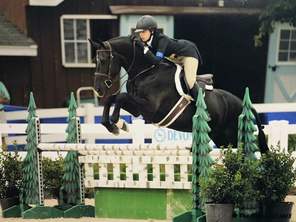
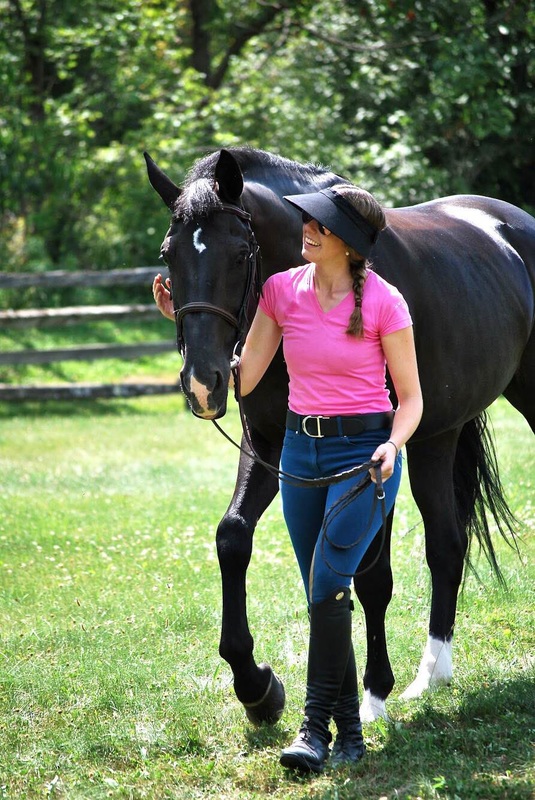
 RSS Feed
RSS Feed
